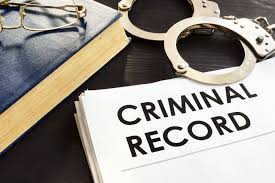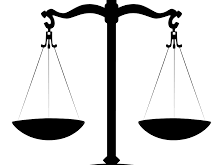Expungement of criminal records will depend on the severity of the crime and the respective state laws
 Emotions like anger, hatred and jealousy often push people to break laws. But at a later stage, it has been seen that many people realize their mistake. Such people may want to seek forgiveness for their actions and try to start life afresh. However, the criminal record can create challenges in terms of getting employment and renting a house. Even the ability to volunteer could be impacted.
Emotions like anger, hatred and jealousy often push people to break laws. But at a later stage, it has been seen that many people realize their mistake. Such people may want to seek forgiveness for their actions and try to start life afresh. However, the criminal record can create challenges in terms of getting employment and renting a house. Even the ability to volunteer could be impacted.
However, there is no need to get discouraged, as the criminal records can be cleared by following the relevant legal procedures. To understand how you can get your criminal records clear, here are some important things to understand.
Arrest vs. conviction
If you were arrested based on suspicion, but charges were not filed, there may not be any criminal record against you. However, it is possible that arrests can show up in specific background checks. In case you have been convicted, you can apply for expungement or record sealing after you have paid your fine or served the jail term. The specific process to be followed for expungement or record sealing will depend on state laws. Some states have such options, whereas others have no expungement laws at all.
Eligibility criteria to get criminal record cleared
Expungement will be easier if you were involved in a misdemeanor. This relates to minor, non-indictable offences such as possession of drugs, drunk driving, petty theft, minor assault, trespassing, resisting arrest, etc. In comparison, felony charges will be a lot more difficult to get cleared. The process of expungement can only be started after you have completed your sentence.
Most states have a waiting period before you can apply for expungement. It can range from a few years to even more than a decade after you have completed your sentence. If you have a clean record after your conviction, you have a better chance of getting your criminal record cleared.
How to apply for expungement
You will have to file a petition with the court that has passed your conviction order. The court will verify the details and ensure that you meet all the eligibility criteria. You may seek help from legal aid organizations that may be involved in such cases. Some courts have inhouse teams that can also help you with the legal processes involved in getting your criminal record cleared.
As getting your criminal records cleared can be a complex process, it would be better to consult an attorney. This is especially true in cases involving serious crimes. If expungement is not available, you can also try for record sealing. This will restrict your record access to most landlords and employers. However, certain professions may require specific disclosures, irrespective of expungement or sealing laws.
 Newspatrolling.com News cum Content Syndication Portal Online
Newspatrolling.com News cum Content Syndication Portal Online






